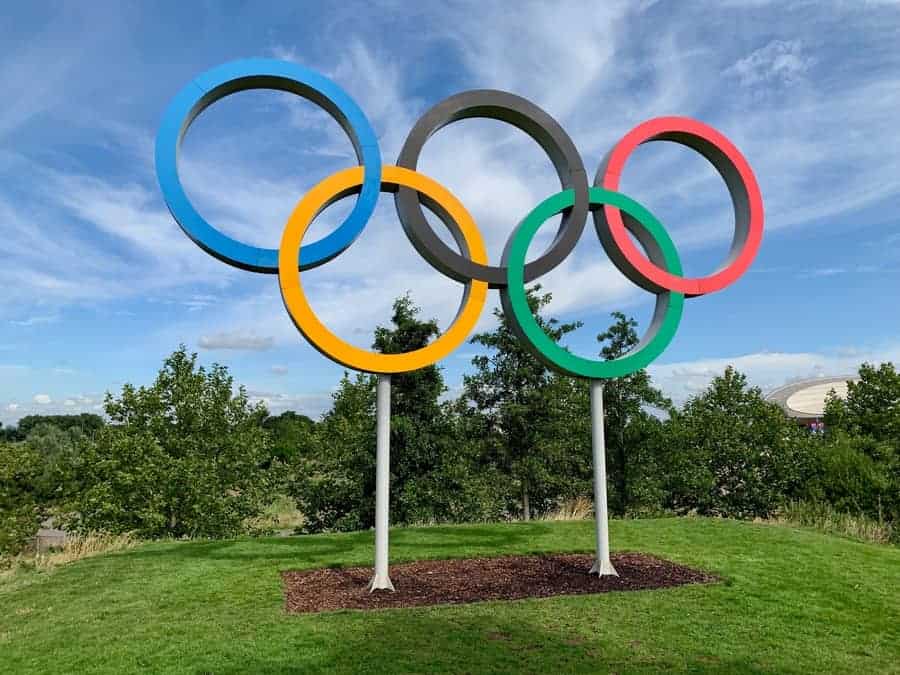Lately, mixed martial arts or MMA is one of the fastest-growing sports in the world. UFC’s worldwide popularity and stars like Conor McGregor, Khabib Nurmagomedov, and Jon Jones are helping the sport to get on the list of the top 10 most popular sports in the USA. When talking about MMA’s fast-growing popularity, the question “When will MMA become an Olympic sport?” often comes up.
MMA is not an Olympics sport. If and when we’ll see it at the Olympics is quite uncertain. Even if MMA does become an Olympic sport, we will probably have to wait some time for it to happen.
Now that I have stated that there is some uncertainty with MMA becoming an Olympic sport, let’s see why that’s the case. I will briefly explain what makes a sport eligible to be at the Olympics and what are the criteria for that. How do mixed martial arts fit these criteria and what are the biggest issues for MMA at Olympics?
Eligibility Criteria for the Olympics
The Olympic Games are the pinnacle of sports. Dating back to Ancient Greece, the Olympics served as a podium for the world’s best athletes to compete in dozens of different sports. They are a symbol of health, greatness, competition, peace, unity, and worldwide connection. So, for a sport to be eligible for inclusion at the Olympics, it has to satisfy some conditions, or, to be more precise, 35 of them (split into 5 categories). Let’s see what these categories are.
- Olympic proposal: this category considers whether there is an international body that governs the sport as a whole like FIFA does with football (soccer). It also considers the number of affiliated national federations and how many countries participate in world and continental championships.
- Institutional matters: the category related to the financial status and planning for the sport. It also deals with how the sport deals with gender equality, i.e., are there both men and women participating. The majority of countries should have both men and women athletes participating in the tournaments.
- Value-added to the Olympic movement: as I have already said, the Olympics are the pinnacle of sports. They represent high values in humanity, unity, worldwide friendship, longevity, sportsmanship, etc. For a sport to be recognized as Olympic, it should match those values. A sport should also send a suitable image to the worldwide audience.
- Popularity: this is one of the most important things. With the Olympics being the center of worldwide sports for about a month every four years, it is expected that all the attention of sports audiences concentrates on them during that month. For a sport to be at the Olympics, it should have a great audience. Recently, the International Olympic Committee asks for a sport to be very popular among the younger generations, wanting it to modernize the Olympics.
- Business model: as with all things globally, the Olympics are not different when money is the subject. The money a sport can pull is crucial. Also, the International Olympic Committee takes the cost of staging the sport’s events into consideration.
Does MMA Match the Criteria Needed for Olympic Status?
In 2012, with the UFC’s support, the International Mixed Martial Arts Federation (IMMAF) was founded. It serves as the international governing body for amateur MMA. The IMMAF organizes world championships for both men and women.
In 2018, a total of 362 athletes representing 51 nations competed at the Amateur MMA World Championship. All of these nations have their national federations. Thus, the criteria for the existence of the governing body for the sport are satisfied.
When talking about sport’s popularity, MMA is definitely on the right track. It is the fastest-growing sport in the world and also extremely popular among younger generations, which is something that the International Olympic Committee is recently looking for.
With popularity comes money, so money definitely isn’t a problem. If MMA is to be added to the Olympics, a ton of new viewers would tune in. Also, MMA fights are fought inside the small cage, making it easy to find a venue for the event. There is no need to build large stadiums or arenas.
With the things mentioned above going in the right direction for the MMA’s Olympic status, there are some problems the sport is facing. There is a bad image of MMA being too violent.
Also, there is a problem with the time frame of the Olympics and MMA fighter’s time needed for recovery. MMA is a sport that combines different techniques from other Olympic sports like amateur boxing, karate, taekwondo, judo, and wrestling. Because of that, there are some issues with the supervising bodies of these sports.
For the complete list of martial arts being at the Olympics, check out the article I wrote recently.
So, let’s see what the problems the MMA is facing on the way to Olympic status.
The Problems MMA is Facing Toward its Olympic Status
In 2018, the World Anti-Doping Agency (WADA) denied the IMMAF its membership, saying that MMA is too violent and dangerous to be at the Olympics. The picture of MMA as a violent sport is somewhat controversial.
Although we can often see fighters covered with tons of blood, brutal head kicks, and all sorts of different submissions, the MMA is actually “pretty” safe. There are many cuts and blood, but that is something that fighters will quickly recover from. For example, head damage and long-term health issues in MMA are nothing compared to boxing, where head trauma is a completely normal thing for older fighters.
But what should be taken into account is that Olympic boxing is actually amateur boxing (with headgear more judge’s calls than knockouts). MMA could go “amateur” for the Olympics. Still, it will be tough for the fighter to wear headgear or bigger gloves during the matches. Grappling clinches and close exchanges would be very odd and inappropriate for fighters.
The Olympics are not the first to perceive MMA as being too violent. The UFC wasn’t allowed to organize events in the Madison Square Garden in NYC (the world’s biggest fighting arena) because it was too violent all the way up to 2016. Eventually, NYC allowed it, so maybe, there is a chance for the IOC to do the same.
Another problem is the length of the Olympic Games. The Olympics usually last for 30-40 days. When fighting in the UFC, fighters get a minimum 14-day period of rest (a ban) after each fight because of safety concerns. Bans lasting several months are also often.
So, it is a huge problem when considering that MMA fighters would fight every few days at the Olympics. If a fight ends up being a little too “violent,” the fighter would surely have to drop out because the recovery would take too long.
One way to bypass that is with more gear (just like with amateur boxing). Still, then, the problems with scoring and the gear interfering with the techniques would come into account.
Another problem is the fact that MMA is a mixture of different styles. Combat sports consisting of amateur boxing, karate, taekwondo, wrestling, and judo will appear at the Tokyo Olympics 2021. With MMA “consisting” of all these sports, there are some problems with these sports, indirectly, not wanting MMA to participate in the Olympics.
Reasons for MMA to Be at the Olympic Games
Now that we have seen all the criteria and problems, I will state some things that I think are big pros when considering MMA to be an Olympic sport:
- MMA is the fastest growing sport worldwide. It has international support. In recent years it has spread from the USA to the whole world. Canada, South America, Europe, Asia, Australia, even Africa will probably soon come on the list.
- Women’s MMA is very popular. The likes of Ronda Rousey have helped and motivated tons of young girls to enter the world of MMA. Today Women’s MMA sees global popularity with fighters like Amanda Nunes, Valentina Shevchenko, Weili Zhang, and many others.
- Pankration, which is one of the predecessors of MMA, was at the Olympics back in Ancient Greece. That is certainly a good argument for the sport.
- As already said, MMA is not that violent. Yes, there is a lot of blood and nasty images, but longtime damage is less frequent than in some other combat sports.
- The last thing that is very important to the International Olympic Committee is that there is a huge wave of upcoming kids training MMA from a young age. Fighters like Conor McGregor have inspired thousands and thousands of young kids to venture into the sport, so the future is very bright. That sure is a strong argument for MMA to be at the Olympics.
To sum things up, it is hard to say if and when we’ll see MMA at the Olympics. Some things could be checked off the list pretty soon. But, one has to ask himself the question: “How do MMA fighters benefit from going to the Olympics? Isn’t it better for them to compete in UFC under a professional contract?”
Yes, that is surely the most probable answer, but the Olympics could and are serving as a stage for some new waves of “amateur” fighters to compete and earn a spot on the worldwide stage. Just like it is with boxing, take Anthony Joshua as an example. He won gold at the Olympics, and today he is one of the best and most famous boxers in the world.
If you have more questions about the UFC, check out our beginner’s guide to the UFC, where you will probably find the answer!

